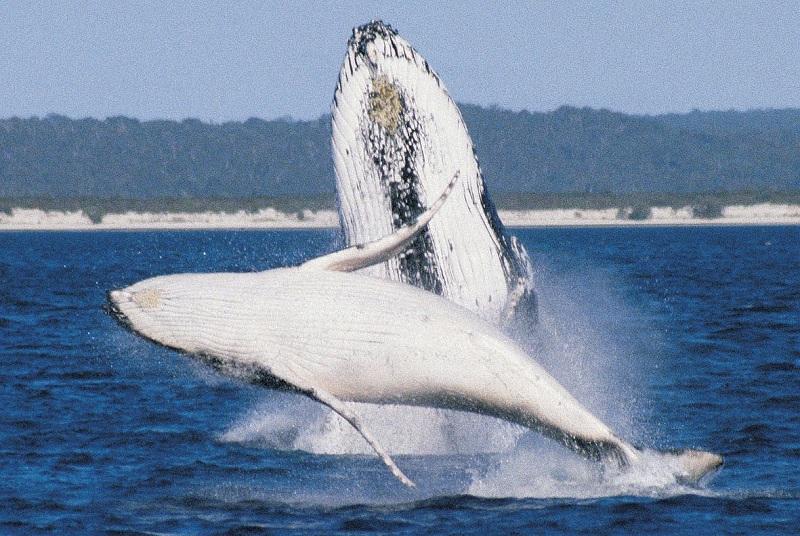Baby whales ‘whisper’ to mothers to avoid predators, study finds

Scientists reveal unique, intimate form of communication between humpback mothers and calves as well as silent method to initiate suckling. Newborn humpback whales and their mothers whisper to each other to escape potential predators, scientists reported Wednesday, revealing the existence of a previously unknown survival technique. “They don’t want any unwanted listeners,” researcher Simone Videsen, lead author of a study published in Functional Ecology, said. “Potential predators such as killer whales could listen to their conversations and use that as a cue to locate the calf and predate on it.” Whales are known for their loud calls, congregating fellow members of the pod. Male humpback whales also emit reverberating sounds to attract females during the mating season. But this is the first time scientists have observed a unique, intimate form of communication between humpback mothers and calves. Researchers from Denmark and Australia tracked each of eight calves and two mothers for 24 hours in Exmouth Gulf, Western Australia, a breeding ground for Antarctic humpback whales seeking warmer waters to mate and give birth. Using tags attached to the animals, the team of scientists recorded their faint squeaks and grunts. “These signals between mother and calf are more quiet than those of normal adult humpback whales,” Videsen said, noting they were 40 decibels lower than the singing of males in the area. While a male’s cry can resound over an area covering several kilometres, the pairs in the study could only hear each others’ calls within a distance of less than 100 metres (330 feet), she added. The low sounds were detected when the pairs were swimming, suggesting the discreet tone helps the mammals stay together in the murky breeding waters, infested with killer whales preying on stray calves.
Read More:

